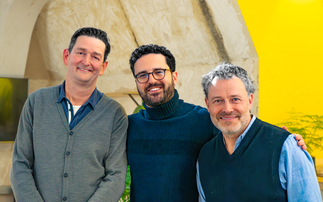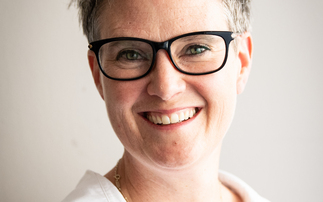Andre Veneman of AkzoNobel argues that heavy industry still has a vital role to play in the green economy
Due to its significant resource use, its waste and emissions, heavy industry has for many years been seen as an obstacle to sustainable development. But this is not the full story. Many leading companies operating in the sector - typically utilities, oil & gas and mining firms - are starting to take sustainability seriously and build it into their everyday operations.
Having a "license to operate" in different locations throughout the world - one that expands beyond simple regulatory compliance - continues to be a major driver of progress. This is especially true considering the recent oil, mining and nuclear disasters. Safety, social and environmental concerns are critical for these large oil & gas and utility companies as they work to ensure that financial returns are long-lived.
Another significant trend is the genuine progress made in this sector beyond the traditional marketing platitudes in yearly sustainability reports. More project teams than in previous years are now charged with specific projects to reduce emissions and energy. And there are more sustainability professionals employed by these companies than ever before.
The World Business Council Sustainability Development's Vision 2050 report foresees major changes in the industrial sector. As well as a four to 10-fold improvement in the eco-efficiency of resources and materials, it is expected that closed loop processes will make landfills obsolete and cooperation across sectors will be standard practice. In addition, it is expected that companies will have effectively managed the transition toward renewable energy and found appropriate replacements for fossil fuel based raw materials.
These changes will create challenges and opportunities for all those companies operating within the sector. This includes suppliers such as AkzoNobel who have the opportunity to help industrial companies respond effectively to these trends.
At AkzoNobel we supply a huge variety of specialty chemicals and coatings for the industrial sector, and we're always looking to find new, more innovative and more sustainable ways for customers to use them.
Our protective coatings are playing a major role in the fast growing wind energy industry. In fact we have protected over 40,000 wind turbines worldwide and were responsible for coating all 175 wind turbines that make up the London Array offshore wind farm.
We are also playing a role in expanding the use of renewable raw materials. Two recent deals illustrate how we are doing this at AkzoNobel. Solvay, the Belgian chemicals group, will help us to make our epoxy resins more renewable while we are working with Solazyme, an American producer of renewable oils, to improve the environmental footprint of our paints, coatings and other products. Deals like this can only work if we are open to collaboration and are part of networks that allow us to tap into the emerging developments in science and technology around the world.
Another example of the role that suppliers such as AkzoNobel can play in meeting the sustainability challenges of the industrial sector can be seen in the Chemical Island concept. Modern pulp mills normally generate excess utilities - such as steam and water from the biomass/pulping process - that can be used to fuel other manufacturing. To make use of this excess energy, we have developed a concept whereby we install our sodium chlorate and chlorine dioxide plants inside or adjacent to a pulp mill. This way we help customers manage their supply and handling of chemicals, while making use of the excess energy generated during paper and pulp production.
In summary, sustainability trends are driving major changes in the industrial sector. Suppliers to this sector, such as AkzoNobel, can play a key role in helping these companies meet these challenges. But they will only do so by delivering big and bold innovations that will facilitate significant change.
At AkzoNobel we have a long history of providing innovative products that make the world a better place. But we know that the world is changing and that our business has to change with it. So we have adopted a strategy of radical efficiency which involves us working with our customers and suppliers to open up infinite possibilities in a finite world. We call this approach Planet Possible - our commitment to doing more with less.
Andre Veneman is corporate director sustainability and HSE at AkzoNobel






